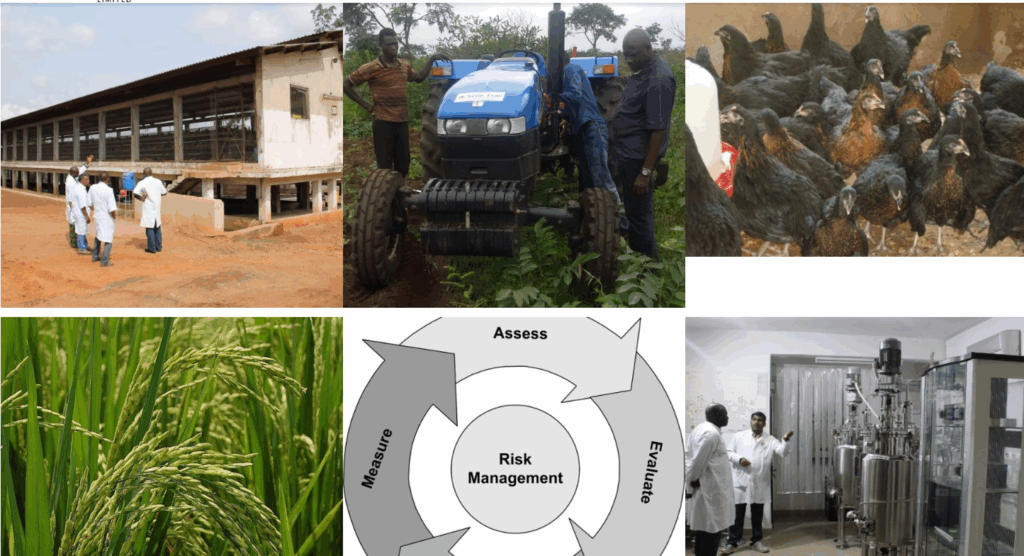Agribusiness is a thriving sector in Nigeria and across Africa, but it comes with its fair share of challenges. Are you prepared to tackle these challenges head-on? This quiz will help you assess your readiness and knowledge in key areas of agribusiness. Each question is designed to provide valuable insights and practical tips, ensuring you are well-equipped for success. Let’s see how you fare!
Quiz: Are You Prepared for Agribusiness Challenges?
Question 1: What is the most effective way to manage soil fertility in sustainable farming practices?
A) Using chemical fertilizers exclusively
B) Incorporating crop rotation and organic composting
C) Relying on monoculture farming
D) Utilizing only synthetic pesticides
Answer: B) Incorporating crop rotation and organic composting
Explanation: Sustainable farming practices emphasize maintaining soil health through natural methods. Crop rotation and organic composting replenish soil nutrients and reduce dependency on chemical inputs. In Nigeria, initiatives like the use of organic compost from agricultural waste have improved soil fertility and crop yields.
Question 2: Which of the following is a critical step in starting a poultry business?
A) Buying the cheapest feed available
B) Setting up proper biosecurity measures
C) Ignoring disease outbreaks until they become severe
D) Using substandard housing to cut costs
Answer: B) Setting up proper biosecurity measures
Explanation: Biosecurity measures are crucial in preventing disease outbreaks in poultry farming. Establishing practices such as controlling farm access, disinfecting equipment, and maintaining clean housing environments can significantly reduce disease risks. Successful poultry businesses in Nigeria, like Amo Farm Sieberer Hatchery, have implemented robust biosecurity protocols to protect their flocks.
Question 3: How can innovations in animal feed contribute to profitable livestock farming?
A) By reducing feed costs and improving animal health
B) By using only traditional feeding methods
C) By relying on imported feeds regardless of cost
D) By avoiding technological advancements in feed production
Answer: A) By reducing feed costs and improving animal health
Explanation: Innovations in animal feed, such as locally produced high-nutrient feeds, can lower costs and enhance animal health. For example, in Kenya, the introduction of insect-based protein feed has significantly reduced feed expenses while boosting livestock growth and productivity.
Question 4: What is a key advantage of using livestock management software in farming?
A) It complicates record-keeping
B) It increases the workload without benefits
C) It provides real-time data for better decision-making
D) It is too expensive for small-scale farmers
Answer: C) It provides real-time data for better decision-making
Explanation: Livestock management software offers real-time data on animal health, feeding schedules, and breeding cycles, enabling farmers to make informed decisions. In Rwanda, the use of such software by dairy cooperatives has improved herd management and increased milk production, contributing to the overall profitability of livestock farming.
Question 5: What are the benefits of adopting sustainable livestock farming practices?
A) Higher costs and lower productivity
B) Environmental conservation and improved animal welfare
C) Increased reliance on chemical treatments
D) Neglecting animal health and welfare
Answer: B) Environmental conservation and improved animal welfare
Explanation: Sustainable livestock farming practices prioritize environmental conservation and animal welfare, leading to long-term productivity and profitability. Practices such as free-range systems, rotational grazing, and organic feeding methods have shown positive results in various African countries. For instance, in Uganda, farmers adopting sustainable practices have seen healthier livestock and better market prices.
Question 6: How can you effectively market livestock products to maximize profits?
A) By selling exclusively to local markets
B) By utilizing online platforms and value addition
C) By ignoring customer feedback
D) By offering the lowest prices without considering quality
Answer: B) By utilizing online platforms and value addition
Explanation: Effective marketing of livestock products involves leveraging online platforms and adding value to products. For example, Nigerian farmers who process raw milk into cheese and yogurt can access broader markets and command higher prices. Online marketing through social media and e-commerce platforms also expands reach and increases sales.
Question 7: What is a common challenge faced by goat farming beginners?
A) High startup costs with no support available
B) Difficulty in accessing veterinary services
C) Lack of knowledge about proper nutrition and breeding
D) All of the above
Answer: D) All of the above
Explanation: Goat farming beginners often face challenges such as high startup costs, limited access to veterinary services, and a lack of knowledge about nutrition and breeding. In Nigeria, training programs and cooperatives have been established to support new goat farmers by providing resources and education, thereby reducing these barriers.
Question 8: How can farmers address common livestock diseases effectively?
A) By ignoring early symptoms
B) By implementing regular health check-ups and vaccinations
C) By using outdated treatment methods
D) By self-medicating without consulting veterinarians
Answer: B) By implementing regular health check-ups and vaccinations
Explanation: Regular health check-ups and vaccinations are essential for preventing and managing common livestock diseases. In Ghana, initiatives like the Livestock Disease Surveillance project have helped farmers reduce disease incidence through regular monitoring and timely interventions.
Conclusion
Assessing your preparedness for agribusiness challenges is crucial for success in this dynamic sector. By understanding and addressing key areas such as sustainable farming practices, profitable livestock farming, innovations in animal feed, and effective livestock management, you can enhance your agribusiness ventures.
For more in-depth insights and practical tips, consider accessing detailed guides and resources tailored to your specific needs. Investing in knowledge and staying informed about the latest trends and practices will empower you to overcome challenges and achieve success in agribusiness. This quiz article not only evaluates your readiness for agribusiness challenges but also provides valuable information to help you navigate this sector successfully. For those eager to dive deeper into each topic, comprehensive resources are available, offering a wealth of knowledge to ensure your agribusiness thrives.


